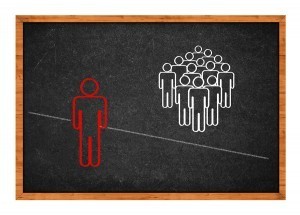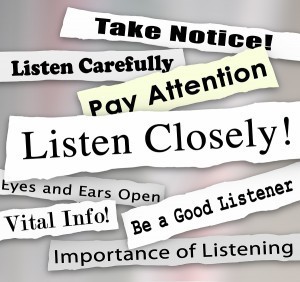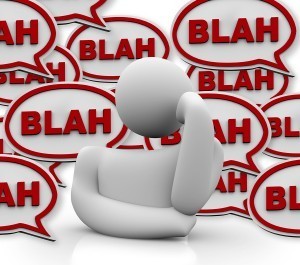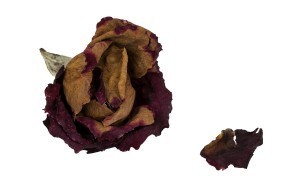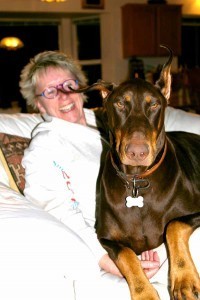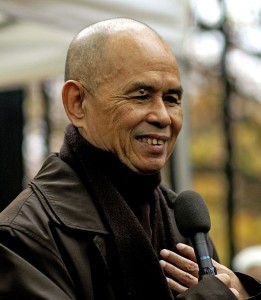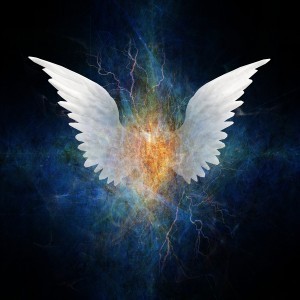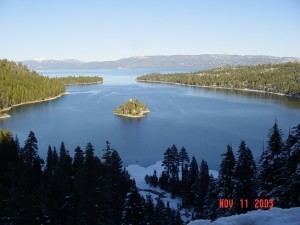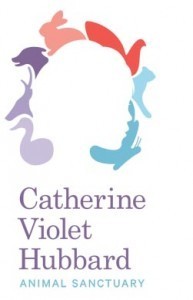Lin Wilder's Blog, page 59
February 16, 2015
Outcasts of Today
‘He shall dwell apart, making his abode outside of the camp.’ They would be outcasts, prohibited from the security and protection of the community.
The command is from the reading in the Christian liturgy for the last Sunday before Lent. The book of Leviticus is proscribing treatment for the Israeli man or woman afflicted with the dreaded disease of Leprosy, a scourge of humanity well into the last century. Only recently- within the last seventy years- have we understood the anti-bacterial protection offered by hand washing and developed medication for those afflicted with Leprosy, thereby making the exile of the infected unnecessary. In Biblical days, the infected individual was required to constantly cry, ‘Unclean’ in order to announce the danger of touching him or her to others; a practice we now decry as barbaric and cruel.
No longer do we need to exile the outsider due to disease or illness with our 21st century knowledge and medical systems, right?
Only three months ago, we witnessed the fallacy of that statement. One man returning home to Dallas who lied about his travel to Liberia was the catalyst for a short term panic. Had the number of Ebola cases continued to increase one could see easily the panic escalating to hysteria followed by easily imaginable consequences like isolation and exile. But that’s Ebola…justifiable due to terrifying risk of contagion and then of death, right?
It was Sunday morning and I was writing, working to complete my second novel when I heard my husband approach from the several mile walk he takes along the beautiful Oceano coast where we’ve been staying through the winter.
“Is it ok to bring in my friend Umberto?” John was talking about a homeless man he has met, a schizophrenic veteran who lives under the bridge.
I stared at him, mouth agape, realizing he was going to bring the man in here…to our RV, the RV I work so hard to keep clean. I looked at the stack of prayer books for the Divine Office I had been praying earlier, before dawn and nodded, wordlessly.
“Beautiful roses, a belated Happy Valentine’s day to you,” Umberto said as he sat on the leather chair where I just had been sitting, writing on my laptop.
Hastily grabbing the laptop just as he was about to sit on it, I smiled at Umberto, shook his hand, and thanked him for the good wishes and asked if he’d like a cup of coffee; working hard to ignore the pungent odor surrounding him and to stop wondering when the hand I had just shaken had last been washed.
“I prefer to drink rather than eat,” he replied to our offer of something to eat but did accept the deviled eggs I had made the night before and graciously accepting the beer John offered him. Umberto agreed that yes, a glass would be nice for the beer and a fork too would be very nice to eat his egg.
My husband, a retired psychologist, worked for over twenty years with former combat veterans. His respect and affection for these men is profound; at times like yesterday morning, he shows me what real hospitality looks like.
The post Outcasts of Today appeared first on Life In The High Desert.
February 8, 2015
Why Should I Listen to You Again?
“Why should I listen to you?” was a rhetorical question asked and answered a few decades ago when I decided to stop watching the news.
Initially, my reason was a simple one. I lived alone with my first Doberman during the time of a series of home invasions in my own and surrounding neighborhoods. The local Houston news graphically called them the ‘Kick-In Burglars”; fitting, since once these crooks kicked in the front door, they could proceed on to do whatever they wished.
What value, I reasoned, was daily listening to details about these frightening break-ins? I had my dog, my pepper spray next to my bed and my 38 on the floor under it- I had done all I could think of to protect myself. Listening to the endless nightly reports simply scared me and to no avail. Over the years, my reasons for opting out of the national, perhaps global, obsession with the nightly news grew at an exponential rate.
Here’s why.
Most likely, I did not frame my rhetorical question exactly like ‘Tell me why I should listen to you again?” but it was close. Intuitively, I resisted the increasingly attractive faces with their disturbingly emotionally appropriate expressions to match whatever catastrophe they were reporting.
I thought frequently about Marshall McLuhan’s prophetic statement about the impact of television and its images upon culture and society: ‘The medium is the message.’ How did it happen that the arguably best educated citizenry in history relied on strangers with great haircuts to form their opinions about their world?
Our ability to question, to demand evidence, even proof to be convinced seemed inversely related to the power of a smile, the presence of absence of a smirk upon our judgement.
During several times in which I held a position of authority, I was exposed to several television hosts and agreed to interviews in hopes of using the exposure for public education only to learn that sound bytes are just that.
Over time, I learned to keep my mouth shut during conversations with colleagues and friends rather than confessing that I did not watch the news: Explaining why was futile.
Incrementally, within the last ten years, there have been increasing numbers of articles, written by non-traditional types describing the effects of watching fear- filled graphic messages right before bed on the viewer: physical consequences like insomnia, high blood pressure , anxiety are among the more innocuous. The articles were distressingly still counter cultural.
Therefore, I was surprised and pleased, to read Adriana Huffington’s post on LinkedIn the other day. Her message?
The news media is far too removed from the reality of main stream life. Despite the fact that we are living in what is the ‘safest period’ of human history, the print and visual news media are filled with violence, murder and mayhem, locally and around the globe. Liberally quoting from Steven Pinker’s latest book, The Better Angels of Our Nature: Why Violence Has Declined, Huffington observes that big city rates of murder, rape and other felonies are significantly lower than in twenty years yet our print and media news men and women defend their nightly forecasts of fear and gloom.
Imagine a diet of news no longer grounded in fear?
The post Why Should I Listen to You Again? appeared first on Life In The High Desert.
February 5, 2015
Discipline and Habit Equal Happiness
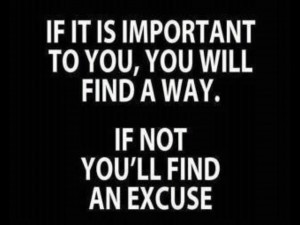 During an interview about the essentials of health and happiness, the reporter was surprised when I added work to my list. We were nearing the end of the time allotted for the interview, therefore I did not have time to elaborate about the many reasons I chose to add work to my list of healthy habits like exercise, ridding the diet of sugar, carbs, wheat and increasing consumption of good fats and getting good sleep. Since that interview, I’ve been thinking about work and why I think it essential to our well-being.
During an interview about the essentials of health and happiness, the reporter was surprised when I added work to my list. We were nearing the end of the time allotted for the interview, therefore I did not have time to elaborate about the many reasons I chose to add work to my list of healthy habits like exercise, ridding the diet of sugar, carbs, wheat and increasing consumption of good fats and getting good sleep. Since that interview, I’ve been thinking about work and why I think it essential to our well-being.
Despite the scores of homeopathic remedies I’d been using to fight off the various varieties of viruses floating around me during the last month, last week my system succumbed and I was too ill to do anything other than sleep for several days.
While at the gym yesterday, I was excited to feel well once again, to have the strength to sweat and this time through physical exertion rather than fever, I looked around at the mostly smiling, happy faces of my fellow work-out partners and thought once again of the relationship between discipline, habit, work and happiness. In a way, I think they are all the same thing.
Here’s why.
With ease, the memories of my first days of working out return.
As a kid, I was not athletic; I am not what anyone would call graceful. When I began running, I was huffing and puffing after the first five minutes and since I wasn’t used to sweating, it felt distinctly unpleasant and I felt ridiculous.
Similarly, when I decided that I needed a closer relationship with God and began the search in earnest, I had no idea of what i was doing, only that there was a hunger.
And later, when I decided to write the novel I’d been threatening to write for my entire life, the process was exactly the same: enduring that phase of flailing around, of feeling stupid…all of that and more.
It starts with discipline.
Always.
Only after slogging through all the hours, weeks, months, even years of doing the best we know how to do, does it begin to get easy. Because now, it’s habit. Whether in exercise, healthy behaviors, prayer and faith, the discipline must precede the development of the habit.
It’s work. Sometimes it’s hard work but once it becomes a habit, what a high.
That is why I added work to my requisite list of necessary behaviors for health and happiness.
The post Discipline and Habit Equal Happiness appeared first on Life In The High Desert.
February 1, 2015
Health is Boring
“Health is boring, disease is sexy.”
I was talking to a CNN producer who was ‘vetting’ me to see if I’d be good fodder for a weekend interview.
I’m a writer.
Like most other writers, I want people to read what I write.
Like most of us, I write about what interests me, often using my own experience and mistakes to help others think about .
When I switched from non-fiction to fiction, I knew I needed help getting known therefore hired a publicist to promote my first novel. Because of my background, the publicist achieved quite a media frenzy when she offered up a former hospital director from Texas to comment on the then country wide panic about the Ebola cases here in the States.
Within a few hours, I was re-educated about what the news viewing audience seems to desire: Conflict, controversy, fear and blame. Once i devised my list of ‘talking points’ or the boundaries of the points I was willing to speak about, including the fact that I had no interest in decrying the beleaguered Dallas hospital emergency room physicians, administrators for being unprepared to treat a condition they had never encountered, the frenzy of interest dropped like a stone with only a few exceptions.
The CNN producer was an exception, at least initially.
My comment was said half in jest but only half. She laughed as she asked for an explanation to my ‘health is boring’ remark and listened with interest while I explained why I had said it:
The likelihood of an average American contracting Ebola was practically non-existent.
The number one cause of death was heart disease, for many, preventable.
Diabetes is an epidemic in America, one out of three adults and one out of four children now a Diabetic and completely preventable.
The prevention was cheap and fully in the hands of each of us, consisting of very simple changes in diet and exercise
After thirty minutes or so, Dana thanked me for my time, explained that CNN was looking for discussion specific to Ebola but that what I had to say was very interesting, she would call me on Monday.
Monday came and went, she never called.
Health is boring.
The post Health is Boring appeared first on Life In The High Desert.
January 30, 2015
A Grief Revisited
Not infrequently, we associate grief with a particular date, room, or specific place. ‘He died on this day’, or ‘she passed at this place’, ‘in this room’ and the day, the place or the room is altered, perhaps forever.
“I hate this place.”
Surprised, my friend Ed asked why.
“I see him everywhere I look,” I replied.
We were standing in a clearing about a quarter of the way up the wilderness path where my dogs and I once hiked.
“How long has it been?”
“Almost a year,” I replied, stunned at my own statement.
There is no more powerful emotion than grief: Anger, rage, jealousy, hatred, lust, greed…name one; none comes even close. Thankfully, as my friend Ed remarked, time mitigates the rawness, the visceral and overwhelming nature of mourning; however, the alteration of our feelings about the place, the date, the room remain: We avoid them as much as possible. Where once there was joy, there is only a void.
We’d been there for to fulfill the requirements for our license renewal for our concealed carry weapon permit; I was there mostly because I needed the target practice. Since the instructor had ‘passed’ me, I left before anyone else and walked the fifteen minute dirt path back down alone. This time, when I’d ‘see’ the flash of a grinning face of my red Doberman, or sense him right around the corner, just ahead on the path or look back to see him racing down the path to me, I didn’t wince.
Yesterday morning, for the first time in close to a year, Shadow and I did the entire hike, just the two of us. During that two hour hike, I saw my boy in so many, many places; at times, so clearly that it felt to me as he was there. There were a couple of bushes where Shadow and Ally would delight in finding and chasing lizards in the spring. Shadow stopped at those bushes and wagged his tail. I wondered if he felt our boy through some canine sense that at times I have learned to trust more than my own.
The two dogs were so very different: Shadow with all of the characteristics of the mostly herding dog that he is: Calm, patient, mellow, mostly trotting; Ally with all of the exact opposite: Wildly enthusiastic, mostly racing, excited about everything.
I am a dog lover. For me, they are an important part of my happiness; but never before had I been so intimately connected with a dog as with Ally. While sitting in my lap he could so clearly read my mind, my emotions reflected back to me in his eyes.
Since we came back from our hike yesterday, I have thought about our time up there, my arguably silly, even crazy visions of my beloved Doberman everywhere. And I wonder.
For a little over six years, somewhere between four to six days a week, for two to two and a half hours per day, eight months a year: over 90,000 hours, Ally, Shadow and I hiked up the dirt mountain path called Pipeline, occasionally with a friend, but mostly, alone.
Is it any wonder then, that Shadow and I could sense…and maybe even see him up there?
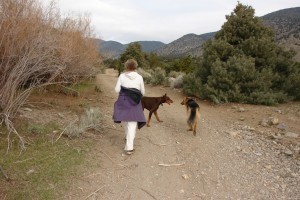
The post A Grief Revisited appeared first on Life In The High Desert.
January 25, 2015
Mindfulness and Anger
Anger: enmity, ire, irritation, rage…we all experience anger but for many of us, the detritus of the emotion piles up over minutes, days, weeks and years and then what? We need only to think about the week that has just ended for some examples where a comment, a person, or a conversation evoked an angry response in us. The question is not whether or not we ever feel the consequences of rage but rather what do we do with that sudden, unstoppable flash of agitation which can completely engulf us if something deep within us is sliced open.
For many, perhaps the majority of those of us living today, we stuff it: Early on, a parent or priest or teacher admonished us severely enough that we became the most consummate of actresses and learned to pretend. We paste a smile on our face if we’re female or a neutral one if male and become adept at filling ourselves with the unexpressed and the unreconciled.
Why?
Yesterday morning, while listening to an interview by Krista Tippett with Thich Nhat Hahn, I began to think about the reactions of anger, rage and all of their permutations because I’m not sure anger is an emotion, reaction seems a better noun than does emotion. Later on, during the film, The American Sniper, I continued to think about these things for I am coming to believe that war is, fundamentally, institutionalized rage.
The reactions of anger and rage are provoked for ‘good’ reasons: Betrayal, injustice, disrespect are only a few of the events which can be transformed by an individual…or a nation to anger and rage. The questions becomes then, what do we do? How do we handle the racing heart rate and sudden red lens of our vision?
Personally, I believe that pretense is toxic. Pretending that the betrayal or injustice did not occur leads to illness individually and collectively. There are more than a few studies of people who suppress anger as suffering far more cancer than do those who express their rage whether in a ‘healthy’ or unhealthy way.
One can reasonably look to Thich Nhat Hahn for some answers; this Vietnamese Buddhist monk exiled from his country for refusal to ‘choose a side’, foresaw the dreadful consequences of the Vietnam war for the world. In 1965, he wrote a letter he called In Search of the Enemy of Man to Martin Luther King. King joined ‘the gentle monk’ in failed attempts to stop the escalating war.
While listening to this wise and holy man I was reminded, once again, of the stunning similarities between Buddhism and Christianity:
the reality of suffering,
the eternal paradox of good and evil, brutality and beauty
and the command to forgive the enemy,
the fact that we must pray for our leaders and that we must not hate them.
The monk explains that his concept of mindfulness teaches us how to take suffering, our own and that of others, how to make use of suffering and transform it into peace and compassion:
‘We cannot understand the kingdom of God without suffering. Suffering must exist…in order to understand the true nature of things. Suffering and garbage are both organic..the garbage becomes flowers…We have created a lot of garbage during the twentieth century…we do not know how to transform the garbage into flowers….We need friends to teach us.’
The actor Bradley Cooper playing Chris Kyle in An American Sniper declares to a fellow Seal that the reason he and the country he loves are there is due to evil.
“There is evil here, we have seen it,” states Cooper, justifying their presence in this endless war worlds away from Texas, his wife and children.
“There is evil everywhere,” replies his friend, unconvinced.
“It seems that Americans are caught in Iraq,” states Thich Naht Hahn…
I think there should be an awakening in America…a realization that the reason for the war in Iraq and Afghanistan was a belief that there were weapons of mass destruction…but they were never found…. that this is a serious ethical problem….I think America is creating more terrorists not less…
“What would compassion look like, let’s say, for a terrorist?” asks Tippett of the monk.
“The terrorists are victims of their wrong perceptions of us….just as we are victims of their wrong perceptions of us….we should not hate our leaders but support our leaders….”
You are me and I am you.
It is obvious that we are inter-are.
You cultivate the flower in
yourself so that I will be beautiful.
I transform the garbage in myself so
that you do not have to suffer.
I support you you support me.
I am here to bring you peace
you are here to bring me joy.
– Thich Naht Hahn
The post Mindfulness and Anger appeared first on Life In The High Desert.
January 16, 2015
Don’t Need Church To Pray?
Of course we don’t need to be in a church to pray, ‘I pray while I am hiking’, ‘while walking in the forest’, ‘while fishing'; I have heard many statements like these, in the past I would nod somewhat uncomfortably; not infrequently, I felt the comments were said as if to ward off contagion from those of us who do go to church. Like me.
Recently, I am rethinking the connections between landscape, church and prayer, realizing that the spirit behind the comments may not be the religious antidote I had always assumed; rather that the spirit animating the words may be far holier than that found in many of our antiseptic, politically correct churches.
In fact, it is so terribly hard not to pray when looking at the snow capped mountains, a mountain top lake, the surf at sunset, we draw a breath, then another, very slowly, silently; we are struck dumb at the beauty. Beauty in all of its glorious, splendid manifestations evokes pure awe, joy, wonder, there are no words. It’s beauty after all, isn’t it? Beauty that overshadows, diminishes, dissolves the very self once we allow the piercing, poignant, splendor envelop and consume us.
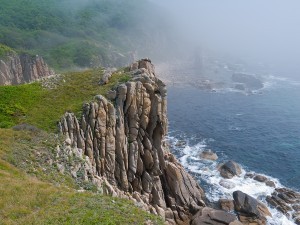
 The catalyst for my recent thoughts about those who prefer communion with Other is an Irish former Catholic priest, philosopher and poet who died in his sleep at the age of 52. Krista Tippett’s On Being rebroadcast an 2007 interview with John O’Donahue. Admittedly, a part of the many reasons I have listened to this hour long podcast twice is the charm of O’Donahue’s Irish brogue but my more elemental motive was to assimilate this man’s fervid yet delicate; impassioned yet wholly gentle; tangible yet ethereal’s prose; to understand in a very new way what may be meant when I hear someone tell me that their church is the natural world.
The catalyst for my recent thoughts about those who prefer communion with Other is an Irish former Catholic priest, philosopher and poet who died in his sleep at the age of 52. Krista Tippett’s On Being rebroadcast an 2007 interview with John O’Donahue. Admittedly, a part of the many reasons I have listened to this hour long podcast twice is the charm of O’Donahue’s Irish brogue but my more elemental motive was to assimilate this man’s fervid yet delicate; impassioned yet wholly gentle; tangible yet ethereal’s prose; to understand in a very new way what may be meant when I hear someone tell me that their church is the natural world.
“It’s strange to be here; the mystery never leaves you.” Tippett is quoting O’Donnell and asks ” What do you mean by that?”
His lyrical reply is about consciousness and about awakening. Awakening, the poet declares, is really the process of understanding that our thoughts of what are around us are always less, always constrained, and never seeing the immensity of the landscape around us, in us or in the mysterious person whose home and bed we share; the mystery of everything. O’Donnell suggests to people, he tells Tippett, that most of us have seven basic thoughts about their world and their life. He suggests that they write down those thoughts in a genuine truthful way then return to them later, perhaps then, truths will reveal themselves.
The philosopher muses about the many people he knows who want to change…others….their work….their life; when all they need to do is to change their thoughts, the way they think, as he speaks, it is with awe about the profound power of thought, the sheer miracle of consciousness.
“Each of is an artist,” he claims, “Each of us is involved in creating the world with each and every thought we think.”
These are just a few of the reasons we are struck dumb in the Presence of Beauty; this is what we mean when we claim that we don’t need church to pray; it’s the silence and the solitude, the otherness of the mountain that brings us out of our silliness, our pettiness, our smallness.
Wistfully, Tippett asks O’Donahue, “Are all the crises we see in marriage, in friendships due to the fact that we are no longer capable of love?”
“N0,” replies O’Donnell after pondering her question, “I think we are less practiced…I think that it is a matter of attention…” Later, he tells Tippett that he believes that “there is an evacuation of interiority in our culture….we are tyrannized by glamour and perfection…in the end, of course the real question is about God, the most important question of our lives, but one that has died perhaps due to the poverty of our thoughts.
In reply to the interviewer’s question, “Do you think that God is related to beauty, the Irish lilt is clear and certain:
…..yes, God is beauty….
The post Don’t Need Church To Pray? appeared first on Life In The High Desert.
January 9, 2015
3 Paradoxical Truths About Writing
Because sales for my latest book have slowed to a glacial pace, I needed a reminder of just why we write; of exactly what motivates us to pursue a character or a subject with such passion that we become sufficiently consumed by the new entity that we complete the article, story or book. The answers came via three paradoxical truths revealed through 3 different people.
During a radio interview I was asked to do early this week, the radio host became quite curious during the show; ‘why’ he asked, ‘does someone with an academic background like yours, switch to fiction?’ Then yesterday, prior to an appointment with a reporter who wanted to use me for a second article he was writing, I checked his first article published in November and noticed that he had never mentioned any of my books. Upon receipt of my email explaining that I would do this second interview only if he included information about my latest book, he replied this way: ‘Re: wasting your time, I’m sorry you feel that way. I thought that helping a well-meaning member of the press inform people would be well worth your time. Maybe I was wrong. ‘ And last, when I was told by a man I met at the dog beach this morning that the title of my latest book was really not a marketable, I smiled in recognition and thanked him.
So what are the truths to be gleaned from these conversations? Starting with the last and moving back to the first, here they are:
The comment from the man at the dog beach this morning was made in good faith; he explained that he’d spent most of his career in sales and marketing and seemed genuinely interested in the fact that I was a writer. Upon looking at the business card I had handed him he declared that most readers would not understand my title, The Fragrance Shed By A Violet when I explained its origin; moreover that ‘your average reader would not care about how Mark Twain defined forgiveness‘. These were comments that I had heard many times during the process of writing, editing and publishing this book. Perhaps the reason sales have slowed to a crawl is that I should listened to the others who went before my dog beach friend.
The reporter expected to consume 30 minutes of my time and give nothing back; after all, he had done so before, successfully, why not again?
Normally, one writes either non-fiction or fiction; generally we don’t see a switch to fiction; especially in later life.
Here is the paradox, some of the realities behind the life of a writer: We write in order that others read what we write but we don’t write for everyone. My dog beach friend is right; I knew the risk I was taking while writing this book by selecting what many people had told me is too poetic or too intellectual a title. I understand and agree but there can be no other title than that one.
When I refused the interview with the reporter, I did so knowing that he might cancel the interview but I knew that I needed to stop giving away my time; to my surprise, he agreed; teaching me that there are times that we must be aggressive.
When I began this book, I was a bit embarrassed; after all most novelists begin early, not later in life, like me. But the truth is, I was not ready early in my life; now I am.
It’s all paradox.
The post 3 Paradoxical Truths About Writing appeared first on Life In The High Desert.
January 4, 2015
A Great Light
The second reading for today’s Divine Office is excerpted from a sermon by Saint Leo the Great.
The people of the Gentiles, who sat in darkness, have seen a great light and for those who dwelt in the shadow of darkness, a light has dawned….a people who do not know you, will invoke you, and the peoples who know you not, will take refuge in you.
This is the day that Abraham saw, and rejoiced to see….believing that he would be the father of nations, Abraham looked into the future, giving glory to God, in full awareness that God is able to do as he promised.
When I first read this passage as a brand new convert 17 years ago I thought the phrase was intended literally; Abraham would have millions of descendants: The Jewish people. It is only after many years of reading and pondering the words of others that I understand the words are intended for you and for me…we are the millions of Abraham’s descendants, we Gentiles who were ‘not fit to eat the scraps under the table.’
Abraham looked into the future, writes Leo, and sees the truth of what God has promised…enough that he is willing to offer up the son of his old age…that deep a trust in this God, this mighty God.
We no longer see that kind of faith; this is the faith seen only in the Old Testament; or in the early days of the church, or in impossibly saintly people like Mother Teresa of Calcutta, most certainly not us.
And yet a young mother of a slain little girl writes on this day:
The night she died the stars shone only with an intensity I could not ignore. I know through them he was calling to me. In the midst of darkness he was there…The star that guides the Magi reminds me that he will guide my way. I must look to the heavens and walk my faith, a journey I may never understand.
Jennifer Hubbard, mother of Catherine Violet, the adorable six year old red head who was murdered at Sandy Hook Elementary School in Newtown Connecticut, reminds each of us of the stark and awful reality of this life. We can suffer the losses, betrayals and tragedies angrily, resentfully, bitterly. Or we can follow this remarkable young woman who chooses the light, chooses to speak and write of the light in the midst of darkness and depravity; to the riskiest choice of all: Trust.
The post A Great Light appeared first on Life In The High Desert.
December 31, 2014
15 New Year Resolutions
In listing the 15 diseases of the Vatican Curia during his second Christmas message on December 22nd to the Roman Curia, Pope Francis electrified, perhaps even scandalized both the world wide religious and secular media. But a brief scan of the list demonstrates the wisdom, knowledge, and truth that went into compiling the list of these ‘diseases’. Pope Francis has provided the perfect template for 15 New Years Resolutions not just for those men in red but for each of us struggling in this world to find peace.
If we take the time to read each one, we know immediately that each of the 15 does, or has in our past, applied to each and everyone of us; none of us is immune, those of us with institutional power of even tiny departments can recognize many of these insidious habits which can seem innocuous but over time, take root and begin to define us. Moreover, a scan at the bureaucratic complexity of the Roman Curia demonstrates the need for each and every item on the list. These are mere men, after all; the robes and offices provide no antidotes to our all too human flaws.
Why then was the Pope’s message so incendiary?
Pope Francis begin the now notorious list of 15 diseases with what he calls the ‘disease of feeling immortal or essential’. Reminiscent of one of my favorite Dickens stories, A Christmas Carol, the Pope advises the members of the Curia to visit cemeteries as an antidote to the seductive belief that everything depends on me- this disease emanates from “the pathology” of power and from “narcissism.”
The list of ‘excessive activity’, the 2nd of the infamous 15, strikes home. The Pope alludes to my Gospel friend Martha who complains to Jesus about her sister Mary’s passivity when there is food to be prepared and served, reminding his listeners of Jesus’ admonition to Martha that Mary had the ‘better part of sitting at his feet’ but note the gentle, loving next comment of the Pope to his listeners, ” neglecting necessary rest brings anxiety and stress.” Indeed.
‘Mental and spiritual petrification’ is used by the Pope to indicate the bureaucratic protection of policies, procedures which dangles in front of all who work in helping professions or governmental agencies and when we drive on by the “will work for food” sins: real and present danger to our understandable to need for protection from the raw suffering of others.
The ‘disease of overplanning’, 4th on the list, also strikes home. By nature, I am a planner and adapting to the native spontaneity of my husband continues to be a major challenge of our 17 year marriage. Battling with the interruptions of daily life in ways that are gracious and hospitable remains as daily work. I well recognize why Francis includes this as a disease: My ‘schedule’ can inhibit the action of the Holy Spirit and so compromise the goal I am working to achieve.
Fifth in this list is one the Pope calls ‘bad coordination’, team spirit thus producing an orchestra producing “undisciplined noise.” I am reminded here of the lessons that can be learned from the game. On the eve of the playoffs, Tom Brady’s decision to restructure his contract to free up 24 million for the team has been the talk of the sports media: Effectively, Brady has given back his money to the team.
To describe the disease of those of us who prefer our own reified and uncompromising views of the Church and to the Gospel, Francis applies the graphic expression of ‘Spiritual Alzheimers’.
The disease of ‘rivalry and vainglory’ comes 7th in this list of universal habits, behaviors and attitudes. Who of us has not been trapped by a title, manner of dress or size of income into believing that the air we breathe is rarified?
‘Existential schizophrenia’ is the weighty phrase the Pope applies to hypocrites- those of us who say one thing and do another. Is any of us immune?
‘Watch out for the terrorism of gossip’ has been one of the more widely quoted of the list of 15, most likely due to the intentionality of the phrase: We don’t see terrorism used as a noun to describe what is often viewed as ‘normal human behavior’ but only a few seconds of thought will reveal powerfully that in no way is this an overstatement.
‘Deifying the leaders’ is, in all too many organizations and institutions , expected behavior. Disagreeing and whistle blowing employees make headlines when the greed of the company becomes overwhelming and justifies all manner of immoral acts.
‘Indifference to others’, 11th in this seemingly endless list of my actions or behaviors which I’d prefer not to dwell on is a constant. Living in a country of inestimable blessings and a life of mostly personal financial prosperity, my indifference to the plight of the suffering of most of this world is yes a sin I must own.
‘The Funeral Face’ as a disease makes me laugh but I recognize it- so do you.
‘Hoarding’ as a disease is aimed at that small part of the world, mine. Because most of the now eight billion have nothing at all to hoard
Cliques- those ‘closed circles’ which begin with the best of intentions but in its closed nature becomes a cancer is a goal displacement each of is familiar with- we know we are aiming for Christ but on the journey we get persuaded that our way is the only way.
Finally we come to the last of this painful list of excess, habits and behaviors familiar to each of us: ‘Exhibitionism and Worldly Profit’. I find it interesting that this is the final of the 15 spiritual diseases; one would assume it to be the first. We know it well.
Thankfully, not each of the 15 on this list is a disease that I currently battle. But I know all too well that even those now dormant can raise their head given even a small change in my world; therefore this list serves well as a template for Resolutions for this burgeoning new year; yes a blueprint for examination of conscience but more a guide to apply as the memory of Christmas fades; as the creche absent the altars, as my Martha personality takes over. None of these is eradicated with ease.
While back in Nevada for Christmas Eve Mass, Fr. Paul recited this poem I had forgotten to end his homily; in hopes that the words can rekindle the meaning of this season of miracles for longer than a few more days, here are these splendid words once again.
The poem was written by Ian Oliver, Minister at Yale University Church:
On that holy night
Somehow
it happened:
God took a handful of humanity;
Proud, petulant, passionate;
And a handful of divinity:
Undivided, inexpressible, incomprehensible:
And enclosed them in one small body.
Somehow the all too human
Touched the Divine
And was not vaporized.
To be human was never the same,
But forever thereafter,
Carries a hint of its close encounter with the perfect.
And forever thereafter,
God was never the same,
But carries a hint of the passion of the mortal.
If God can lie down in a cattle-trough,
Is any object safe from transformation?
If peasant girls can be mothers of God,
Is any life safe from invasion of the eternal?
If all this could happen, O God,
What places of darkness on our earth
Are pregnant with light waiting to be born this night?
If all this could happen, O God,
Then you could be, and are, anywhere, everywhere,
Waiting to be born this night in the most
unbelievable places,
Perhaps even in our hearts.
May God Bless us, each and everyone.
The post 15 New Year Resolutions appeared first on Life In The High Desert.

